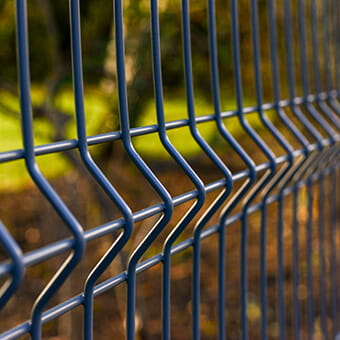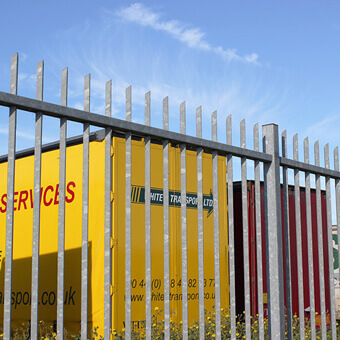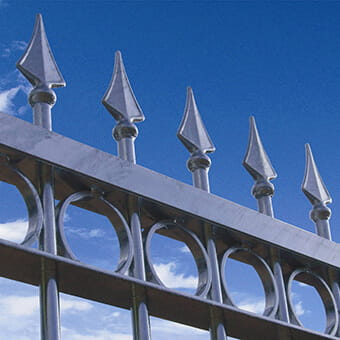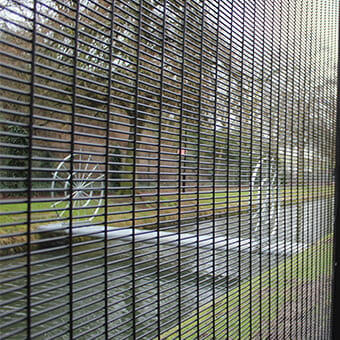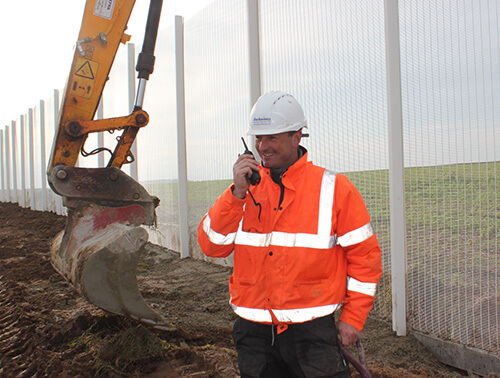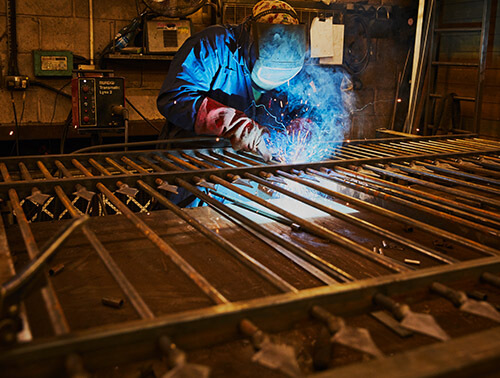Our other sites:
Across the UK, a growing number of churches are going green. Congregations are rolling up their sleeves to reconnect with and look after the natural world. Planting trees, installing solar panels, and hosting recycling facilities or eco-markets with refilling stations are some of the key ways in which religious communities are striving to be part of the climate solution.
However, places of worship are also regular targets of crime, particularly vandalism and theft. According to a survey we conducted on security in places of worship, as many as three quarters of respondents (74%) said their establishment is targeted at least once a year. A meagre 13% feel as secure as they should. Demonstrating how frequent the problem can be, a report in the Cambridge Independent this February showed how shockingly, four churches were targeted during the same weekend in the East Cambridgeshire area.
No one could then fault a church, mosque, temple or synagogue wishing to upgrade their security systems in such a climate. But many establishments may not realise that some choices are greener than others – we’re here to tell you that security fencing does not need to cost the Earth.
How do you know if your fencing choice is eco-friendly?
The first thing to consider is choosing a British manufacturer where possible. ‘Home-grown’ products will naturally be more eco-friendly by virtue of requiring shorter distances to travel, reducing the inevitable carbon footprint from transportation.
A long guarantee provides assurance that the product has been built to last. Guaranteed fencing is covered from any faults arising from poor manufacturing processes during the lifecycle, and it’s also a sign of the manufacturer’s confidence that their product will stay secure and strong for at least the length of time stated, and likely longer. From an environmental perspective, a long lifecycle means that replacements will be fewer, and less poor quality fencing will end up going to landfill.
At Jacksons Fencing, our full range of products automatically comes with a 25-year guarantee. In addition, our timber fencing can be certified under sustainable forest schemes, meaning that the wood is harvested from responsibly managed forests in an environmentally conscious and economically viable way.
Quieter places of worship
For places of worship, acoustic barriers can be a fantastic solution. Noise pollution has been shown to be damaging to human health, but it also affects wildlife from fish to birds. The sound of human activities, for example road traffic, can disrupt communication, affect where animals live and even the efficiency with which they forage food. Choosing acoustic barriers to limit the escaping decibels will therefore vastly improve how green your security fencing is, safeguarding local ecosystems.
Places of worship are also often situated in residential areas, and prayer or celebration can create a lot of noise. Our timber acoustic barriers provide sensitive aesthetics, increased privacy, as well as noise reduction on both sides of the perimeter. They are also secure, with a completely flat, anti-climb face.
Top tips for specifiers
Aesthetics
Places of worship are spaces of sanctuary and prayer, and also venues where life’s key milestones are celebrated, making aesthetics something not to be overlooked.
More than half (54%) of respondents to our survey agreed that seeing lots of physical security makes them feel nervous, and 62% feel that it also detracts from the aesthetics. It’s key then, to choose non-intimidating designs that are harmonious with the welcoming surroundings, yet still secure. Flat-faced anti-climb designs are a great way to achieve this; security toppings, on the other hand, are best avoided. Timber remains a popular choice as it provides a neutral backdrop for gardens and social areas.
Playground safety
Children are often present at religious spaces; any gates that are automated need to be CE-marked for safety, and to keep any outdoor play areas safe, fencing should be approved by The Royal Society for the Prevention of Accidents (RoSPA).
Fencing needs to be anti-trap (with BS EN 1176 standard), so that kids don’t get their heads or limbs stuck while getting carried away with games. There are both metal and timber options available; with metal, you should opt for powder-coated, and with timber, planed and pressure-treated. Self-closing gates are a good choice.
Keeping intruders out
Turning our attention to those belonging outside the perimeter, what constitutes good security for a place of worship? One of the fundamentals is that any bolts and rivets are not visible, and can’t therefore be removed to gain entry. Tamper-proof fixings and welded pale-through-rail construction are a good solution, and panel-to-post connectors should also be vandal-proof.
Security always needs to be weighed against privacy, as they don’t always work hand-in-hand. Visibility often means better security; for example mesh works well with CCTV, allowing views to the outside to see anyone attempting to enter.
With places of worship often relying on donations and volunteers, budgets tend to be tight. This unfortunately means that maintenance capabilities may be stretched. It’s better to go for high quality fencing that reduces the need for costly repairs – this allows budgets to be focused on important community help and outreach down the line.
High quality finishes, such as galvanised steel, or zinc alloy coatings, provide extra protection against rust and corrosion. Our wire gauge is measured before coating in order to give an accurate representation of strength.
Integrated security
Larger, more prestigious religious sites would do well to consider investing in perimeter intruder detection systems (PIDS). These include discreet measures, such as sensors installed around a site that detect attempts at climbing or cutting, and alert a remote alarm system.
Jacksons Fencing specialises in fence-mounted PIDS, as they can be combined seamlessly with your existing perimeter fencing solution. Hostile vehicle mitigation (HVM) is another discreet way of improving security, by halting vehicle-borne threats through the use of bollards, temporary barriers and other protective measures.
For further information, download our white paper ‘Securing Places of Worship’, or if you’d like advice on the right solution for you, talk to us today.
Related products
Jacksons Security has a range of products relating to this article, all complete with our 25 year service life guarantee. If you cannot find the item you are looking for, please do not hesitate to call our friendly sales team.
Related Content
Top
